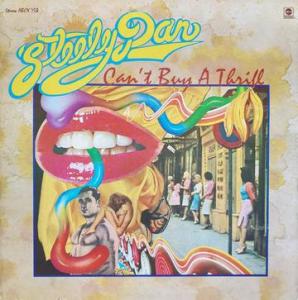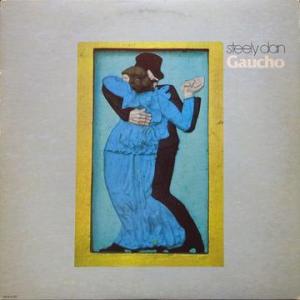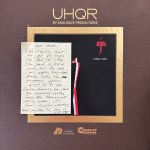 More of the Music of Steely Dan
More of the Music of Steely Dan
Reviews and Commentaries for the Music of Steely Dan
It’s been almost one full year since we reviewed our first Steely Dan UHQR, Can’t Buy a Thrill. If you have a few minutes to kill, you can read about it here.
One whole year. Time flies!
Some folks chide us for constantly beating up on one Heavy Vinyl release after another, as if we actually like doing it. We don’t think that’s fair (the “constantly beating up” part, not the “like doing it” part. We actually do like doing it. If we didn’t, we wouldn’t do it. It costs us money and time, and obviously doesn’t put a penny in our pockets, since we would never sell you a record that sounds as wrong as most of them do).
Contrary to what some folks believe, and as we try to make clear in the following paragraphs, we’re actually quite far behind on our Heavy Vinyl reviews. The reality of our situation is that we simply cannot keep up with all the bad records being made these days.
Let’s look at the facts. The Electric Record Company’s Heavy Vinyl pressing of Quiet Kenny is still waiting for a review after three years. The Kind of Blue on Mofi at 45 RPM? That one I played at least three years ago. Still no review. I know what I want to say about it, I just haven’t found the time to say it.
Other bad records still waiting to be written up include the Craft pressings of Born Under a Bad Sign and Lush Life; the Britten Young Person’s Guide to the Orchestra on Cisco; Mingus’ Blues and Roots; Dire Straits’ first album, Tapestry and Blue on MoFi; the AP Plow that Broke the Plains; Black Sabbath’s Paranoid; Weaver of Dreams on Classic; LeGrand Jazz on Impex; the 2018 remix of Pink Floyd’s Animals; the Abbey Road Half-Speed mastered pressing of Sticky Fingers (shocker: it could be worse!); Tina Brooks on Music Matters (not that bad, actually); Led Zeppelin’s first album and Houses of the Holy remastered by Jimmy Page; and there are bound to be plenty of others that I’ve simply lost track of.
I have the records here in Georgia with sonic notes attached, and one of these days I will dig them out and make listings for them.
There is an overwhelming, seemingly inexhaustable supply of collectible, out-of-print Heavy Vinyl available to the credulous audiophile with a computer and a credit card.
In addition, there are hundreds of new titles being released every year, far more than a cottage operation such as ours could ever hope to find the substantial amounts of both time and money it would take to buy, clean, play and review them all.
Keep in mind that we don’t get paid to do any of that. We play and review these records to help audiophiles — customers and non-customers alike — better understand their strengths and weaknesses relative to the amazing sounding vintage pressings we offer as Hot Stampers.
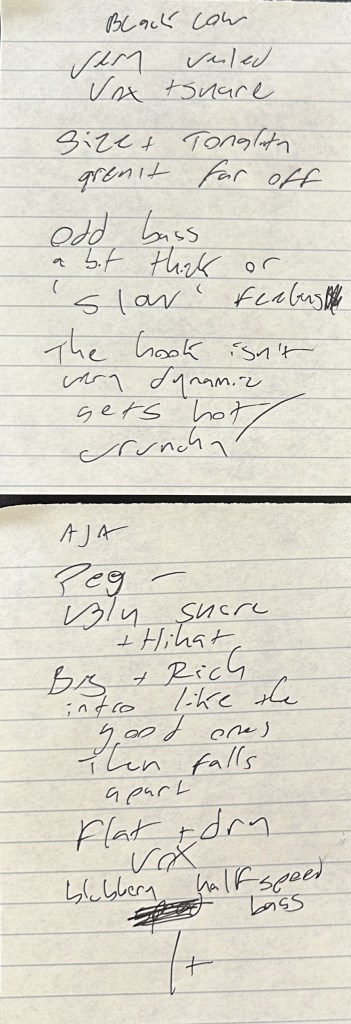 We hope that at least some fraction of the audiophile public who own these titles will be able to hear for themselves the shortomings we have described and begin to consider the possibility that there might be another way.
We hope that at least some fraction of the audiophile public who own these titles will be able to hear for themselves the shortomings we have described and begin to consider the possibility that there might be another way.
That other way can be found in the bins of their local record stores or, for those with deeper pockets, on our site.
Either way, settling for the kind of sound found on these modern reissues is the one choice no one should be making. Especially in the case of this awful UHQR. For $150 no less. Our transcribed notes follow:
Side One – Black Cow
Very veiled vocals and snare.
Size and tonality aren’t far off.
Odd bass. A bit thick or “slow” feeling.
The hook isn’t very dynamic.
Gets hot and crunchy.
Side Three, Track One – Peg
Ugly snare and hi-hat.
Big and rich intro like the good ones then falls apart.
Flat and dry vocals.
Bluberry Half-Speed bass
Grade this side: 1+
Side Three, Track Two – Home at Last
Really hear the issues here.
Compressed, hard, flat.
Smeary hi-hat.
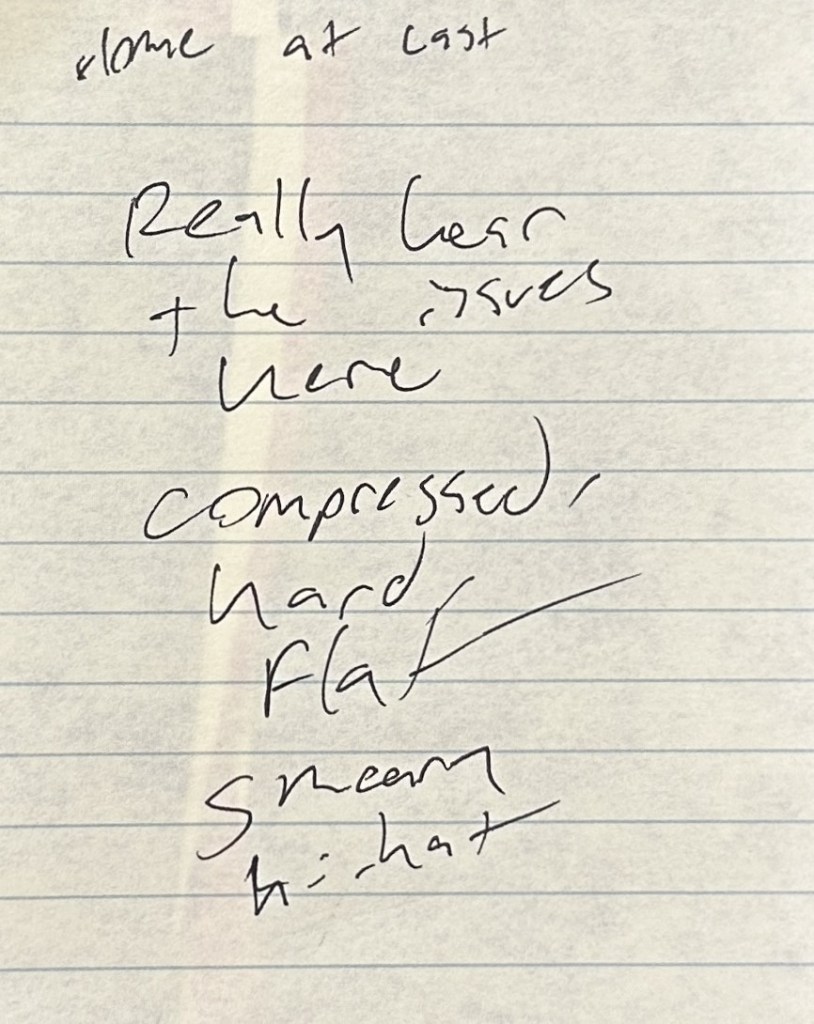 Summing Up the Sound
Summing Up the Sound
Size and tonality aren’t far off for tracks like Black Cow and Peg.
The sound is kind of rich but the mids are pretty flat and dead.
Really lacking the transparency, presence and breath in the vocals.
Lacking dynamics too.
Peaks get compressed and gritty.
Songs like Home at Last really suffer.
It’s hard, recessed and messy.
Final grades
 Black Cow and Peg: 1+
Black Cow and Peg: 1+
Home at Last: NFG
We do not sell records with sound so mediocre that they have only earned a sonic grade of 1+.
As for NFG, what is there to say?
Note that in our review for the Cisco, Home at Last was the track with the most obvious problems there too. We said it was “the toughest song to get right on side two.”
From our point of view, it’s clear that the Bernie Grundman of 1977, age 34, had the skills and the equipment to knock Home at Last right out of the park. Contrast that with the record the Bernie Grundman of today has produced, at the age of 80, with different equipment (my money is on much worse equipment) and who knows what remaining skills.
Yes, it’s unfortunate he was stuck with a dub tape — those are the breaks — but that doesn’t excuse the fact that he made a right mess of Home at Last, a different mess but not a better mess than Kevin Gray made using whatever crappy dub tape he was stuck with.
A sad state of affairs for the audiophiles who love Steely Dan and Heavy Vinyl. You can have one or the other, but you can’t have both, not with Chad calling the shots and Bernie doing his bidding.
What’s Up with Chad?
Speaking of the Bernie Grundman-Chad Kassem connection, we reproduce below the hopelessly mistaken advice we gave Chad after having played his not-that-terrible Can’t Buy a Thrill UHQR:
He used to like super-fat and tubey jazz records, and he hired Doug Sax to make some of those for him. For a while he liked MoFi-like records, and he hired Stan Ricker to make some of those for him. He hired Kevin Gray to make mediocrities like Quiet Kenny (review coming, but you can watch the Washington Post video to get the idea), and he hired George Marino to make a mess of Tea for the Tillerman.
If he’s hiring the best, as he likes to say he is, why all the second-rate and third-rate and just plain awful sounding records?
Our advice: Chad should fire all the other engineers he’s been hiring lately and just work with Bernie from now on. (The guy who cut this record should definitely not be rehired. When’s the last time he mastered a record that’s any better than passable?)
We give up. There is no hope for this guy and his astonishingly misnamed Quality Record Pressings.

There is an interview with Bernie Grundman about the making of this Aja UHQR which can be found on youtube easily enough. In it he admits that it’s mastered from a tape copy. Discogs notes:

“Mastered from an analog, non EQ’d tape copy.”
I guess audiophiles of a certain persuasion — those with an affinity for remastered Heavy Vinyl pressings know who I’m talking about — can take solace in the fact that this new Aja is still better than the unbelievably bad sounding Cisco pressing that came out in 2007. (That Cisco pressing was undeniably NFG on both sides.)
Fremer raved about that record, but now that Bernie has cut a better pressing for The Big Guy, he can obviously see how he got that one wrong, even though he seemed fairly confidant about the quality of the sound in his review from 2007.
Hey, do me a favor and take a minute and see for yourself. The guy who wrote this seems pretty confidant, right?
“This new Cisco reissue is vastly superior to both the original pressing (ABC AA 1006) and to Mobile Fidelity’s ½ speed mastered reissue (Mobile Fidelity MFSL 1-0333).

‘If your stereo system (or your personal savior/used record dealer) tells you otherwise, blame it and/or him, not Elliot Scheiner, one of the original engineers on Aja who oversaw this reissue, or Donald Fagen (no introduction necessary), or Kevin Gray and Robert Pincus who mastered it from the original analog tape at AcousTech.”
In case you were wondering, the aforementioned “personal savior/used record dealer” might just be yours truly. I’ve been called worse.
No matter. He goes on to give the Cisco Aja a 10/10 grade. Seriously, those are the grades you see pictured. 10 over 10, no joke as Biden would say. (I guess the music got better in the 17 years that elapsed between the two pressings too. It happens.)
Shortly thereafter he writes:
“This remaster exudes the kind of musical honesty you might expect when one of the original engineers and the artistic center of gravity are involved in its production.”
To my knowledge, there is not a whit of evidence to support the idea that any such original engineer and any such artistic center of gravity were involved in the Cisco production.
Later on he adds:
“By the way, if someone says the reissue doesn’t sound any good, be sure to ask about that person’s playback system. For the record I listened on The Continuum Caliburn turntable with Cobra arm, the Grand Prix Monaco turntable with Graham Phantom arm and the Merrill MS21 turntable with Triplanar arm. Cartridges included Lyra Titan i, Koetsu Urushi Vermillion and Air Tight PC-1. Phono preamps included Einstein Turntable’s Choice and Manley Steelhead. Preamp was darTZeel and amps were Musical Fidelity kWs driving Wilson MAXX2s. Cables were TARA Labs Zero interconnects and Omega speaker cable. Believe me, I heard what’s on the vinyl loud and clear and it’s spectacular!”
Man, that’s got to hurt. If you own any of that stuff, my advice would be to get rid of it, and pronto.
Can Fremer really have wasted that kind of money on equipment that is so far off the mark that a piece-of-garbage record like the Cisco LP actually sounded right to him?
Yes, that’s apparently what happened. And if you have been in the audio game for any length of time, you know that Analog True Believers like him get taken to the cleaners every day of the week.
If Fremer used that same system to review any other records back then, you should seriously consider ignoring his reviews for those too. (My advice, starting in 1994, has never wavered: audiophiles who appreciate good sounding records should make a point of ignoring anything the man says or writes. Or doing the opposite of whatever it is that he advises. Now that I think about it, that might actually work better.)
I’m sure he will tell you that everything system-wise is better now. No doubt the list of equipment he owns is even longer and you can be damn sure the equipment on it is even more expensive.
Now he’s really got Aja’s number. It’s not a 10, it’s an 11!
Some of us remain skeptical. We bump into his writing from time to time, and it sounds pretty much the way it always has. If he’s learned anything about records in the last 30 years, I see no evidence of it.
You can find his Cisco reviews — the original one and the newly corrected one — on his site if you care to do the search. I honestly for the life of me don’t know why anyone would bother.
(more…)

 More of the Music of Steely Dan
More of the Music of Steely Dan We hope that at least some fraction of the audiophile public who own these titles will be able to hear for themselves the shortomings we have described and begin to consider the possibility that there might be another way.
We hope that at least some fraction of the audiophile public who own these titles will be able to hear for themselves the shortomings we have described and begin to consider the possibility that there might be another way. Summing Up the Sound
Summing Up the Sound Black Cow and Peg: 1+
Black Cow and Peg: 1+






